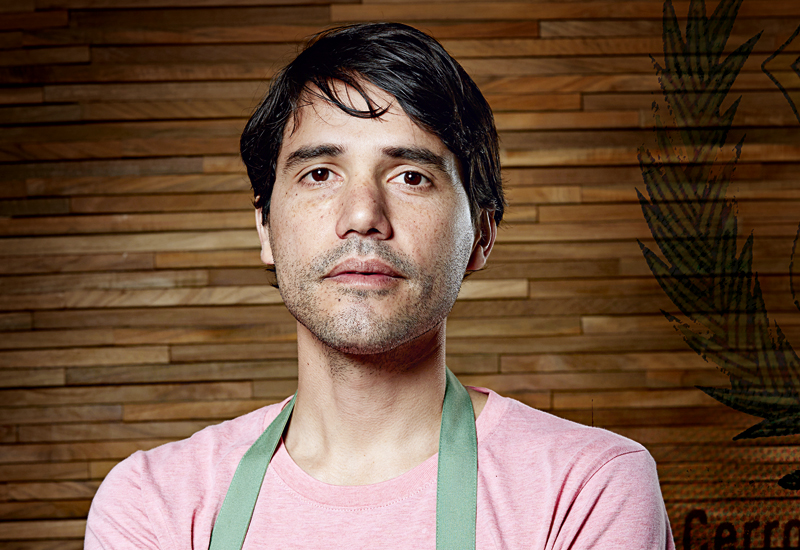Peruvian cuisine has been in the global spotlight for a few years now, and Dubai has been no different. At 2016’s Caterer Middle East Food & Business Conference, it was predicted that no less than 14 Peruvian concepts would be open by the end of the year. It’s in the shadow of this Peruvian emergence that celebrated chef Virgilio Martínez opened his first restaurant in the Middle East, with Lima Dubai in City Walk Dubai.
Martínez tells Caterer Middle East that this trend was seen in London a few years ago as well. “In two years, I saw about 12 or 13 Peruvian restaurants in London, and this is happening in Dubai. It’s not a trend, Peruvian cuisine has been around for years. The thing is, the world never discovered this part of Latin America.”
He adds that opening a venue in Dubai has happened at the right time, with Lima being the concept among his portfolio (which includes Central, Lima and Nos) the one best suited for global expansion. He says: “Many friends and chefs have come over here; there’s something happening here, it cannot be denied. The city is growing and growing, and gastronomy is growing with the city. For us, I wouldn’t say it was easy, but it was quite nice to have the opportunity to come to promote our ingredients.”
Eight chefs in the 14-strong kitchen have previously worked with Martínez, and he says the opening of Lima Dubai has delivered an opportunity to promote not just Peruvian food, but show the region what the culture and cuisine is all about. The team will be headed by South American chef Diego Sanchez, who has previously worked in Dubai at Grosvenor House's Toro Toro. In preparation for his role heading up the kitchen of Lima Dubai, Sanchez worked alongside Martínez at Central in Lima, Peru.
The rest of the team has been picked for their attitude with Martínez saying he loves having a team that gets along. “When you’re in the kitchen and you spend so many hours together you have to get along. There’s no shouting in our kitchen, there’s no crazy thing like you see on TV with chefs yelling. We try to avoid these very disrespectful things, and I want to see very calm, dedicated people – who don’t have to be Peruvians. Peruvian food is very global so people from all over the world are welcome to be part of this dream, to have Peruvian restaurants in different parts of the world which never happened before.
“[Having a mix of different cultures in the kitchen] is important because you have different perspectives. We are not just doing traditional Peruvian cuisine, we are innovating, so it’s good to have people from different places.”
Martínez explains that he wants to share the changes seen in the Peruvian cuisine landscape over the last decade to the diners in Dubai. “The kind of Peruvian cuisine that people are aware of is the melting pot of Incan culture and Spanish and Italian, Japanese, Chinese — the mix of cultures that happened organically over 500 years, but that is one part of Peruvian gastronomy.
“There’s way more: the whole business of ingredients and the culture. All this deserves a place to be showcased, and cities like Dubai are great to do this,” the chef adds.
Talking about ingredients, it’s clear that Martínez is passionate about the topic. Just before the opening of the restaurant, he posted on Instagram about Andean potatoes that would be served at the outlet. I ask him about ingredients that will be used at Lima Dubai, and he comments that having the opportunity to bring products from small producers in Peru to the UAE is what he’s looking forward to.
“I happen to be born in one of the most bio-diverse places in the world, which is Peru. You can be by the sea and then in one hour you can be up in the mountains, and then in another hour you can be crossing to the Amazonian jungles. That’s just amazing not just in terms of geography and landscape but amazing in terms of ingredients,” he says.
“I go and meet the producers, and not just take whatever they have — for us it’s a matter of trying to understand how they cultivate and forage items. Our job is to work with these producers, find ingredients and then promote them wherever we go.” Martínez does assert, however, that he’s keen to work with local ingredients from the Middle East where possible.

| Advertisement |









 Search our database of more than 2,700 industry companies
Search our database of more than 2,700 industry companies









